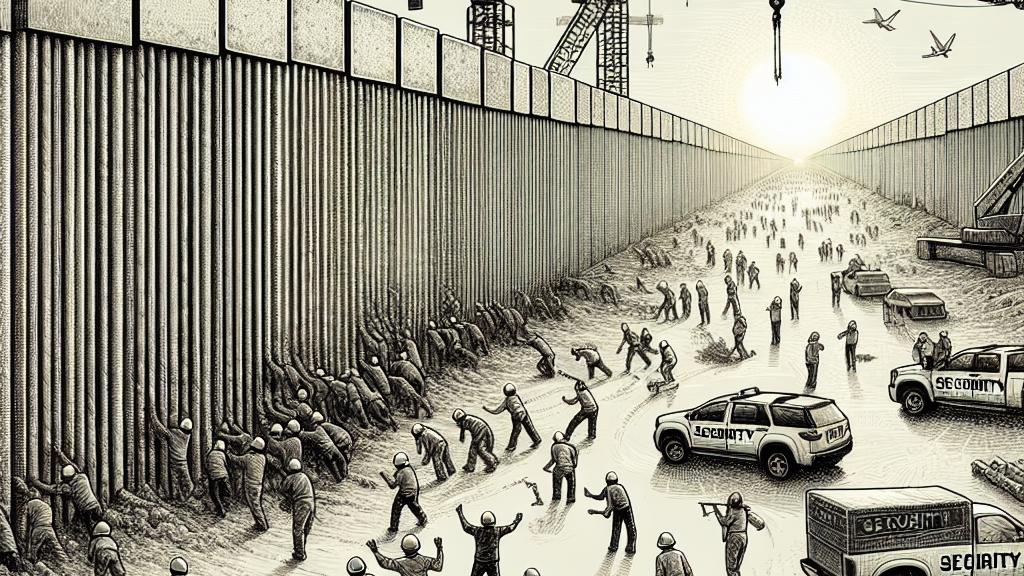Border Wall Expansion: South Africa's Strategy Against Mozambique Crime
Overview
- In a strategic response to escalating crime, the KwaZulu-Natal region of South Africa is embarking on an ambitious border wall construction project aimed squarely at curbing threats from Mozambique.
- This significant initiative comes with a budget of $2.6 million and intends to drastically reduce vehicle theft and smuggling activities that have disrupted the lives of local residents.
- Supported by enthusiastic community backing and military involvement, this project highlights a commitment to regional security and cooperation that benefits both nations.

Kickstarting the Border Wall Initiative
In a move that has captured national attention, South Africa is undertaking an ambitious plan to construct a substantial concrete wall along its border with Mozambique. This noteworthy initiative, costing around $2.6 million, targets the rampant issues of vehicle theft and smuggling that have plagued local communities. After facing delays due to a tender investigation back in 2021, the project has gained renewed momentum, with officials expressing optimism that the first 25 kilometers of the barrier will be completed by early 2025. This first phase does not merely represent a physical barrier; it stands as a testament to the relentless commitment of both local and national governments to protect citizens and restore stability in the region.
Understanding the Socio-Economic Dynamics
The 400-kilometer border shared by South Africa and Mozambique is not just a line on a map; it is a rich tapestry woven with cultural, economic, and historical threads. Mozambique plays a crucial role in South Africa's economy, especially concerning natural resources like natural gas and trade opportunities via the Maputo port. In fact, this port is a vital artery for goods traveling between the two nations. However, with the recent surge in crime threatening this economic lifeline, the construction of the wall becomes increasingly urgent. Beyond safeguarding people, it promises to facilitate smoother transactions and ensure that vital goods continue to flow unobstructed across borders. Therefore, the wall symbolizes a protective measure intended to fortify not just safety but the shared economic future of both countries.
The Impact of Community Support and Political Implications
What truly amplifies the significance of the wall project is the robust support it receives from local communities, who feel the effects of cross-border crime acutely. Many residents recognize the wall as a vital shield against threats, with recent military interventions thwarting vehicle thefts as proof of its immediate benefits. Politically, this undertaking reflects South Africa's dedication not only to enhancing national security but also to maintaining a delicate balance with Mozambique, a nation steeped in shared historical narratives and deep-rooted cultural connections. By fostering collaboration between military and civilian sectors, this project symbolizes a proactive approach to governance and community resilience. It opens doors to a future where safety and economic growth can flourish side by side, serving as a model for regional stability and cooperative advancement that both nations can aspire to.

Loading...